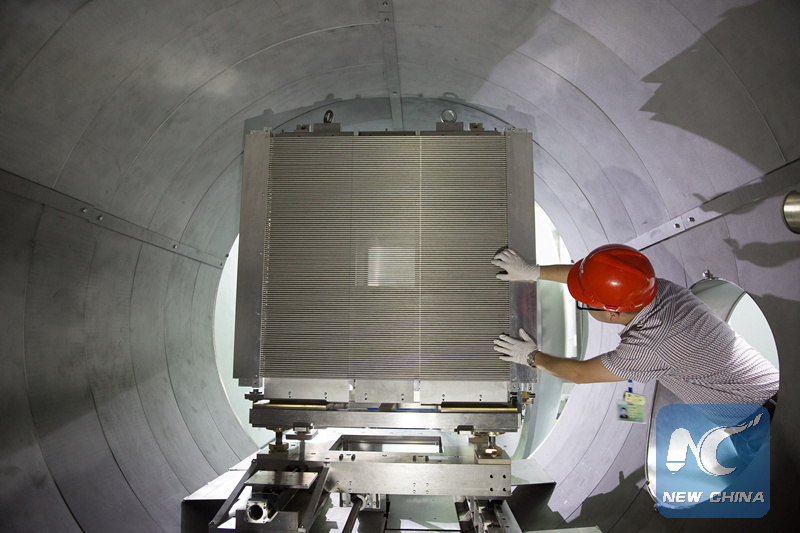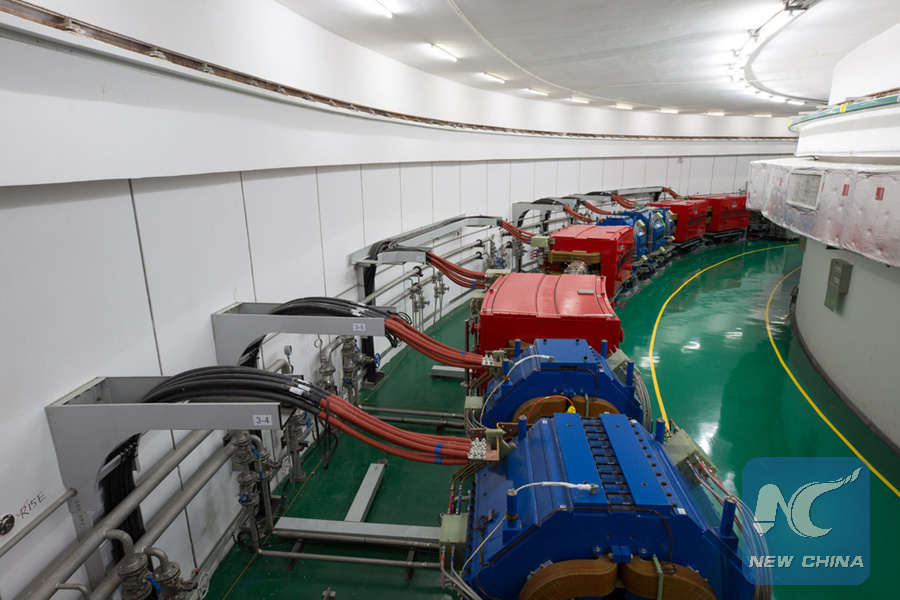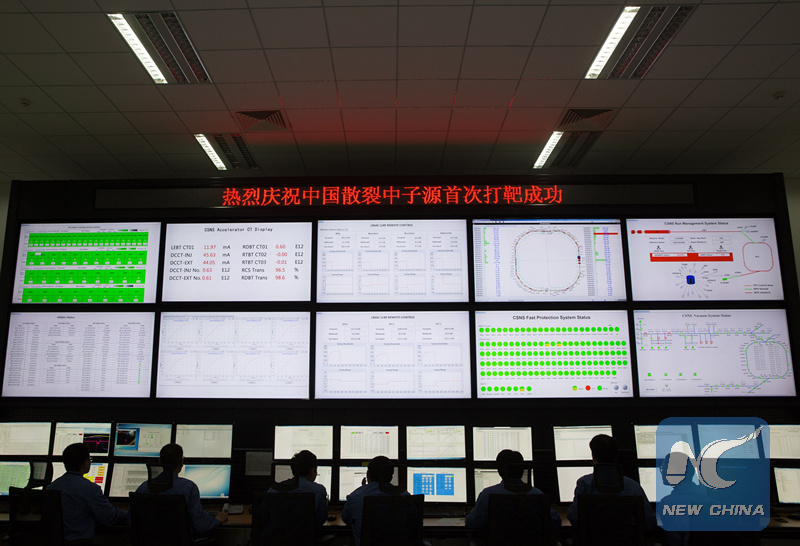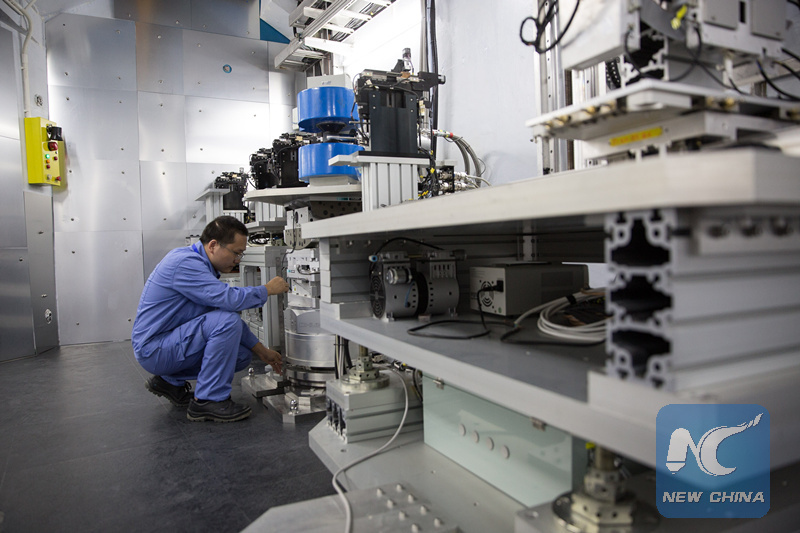
File photo shows engineers debug a neutron instrument for the China Spallation Neutron Source (CSNS) in Dongguan, south China's Guangdong Province, Sept. 1, 2017. A neutron beam was successfully obtained at the CSNS for the first time on Aug. 28, 2017.
GUANGZHOU, March 26 (Xinhua) -- The China Spallation Neutron Source (CSNS) was put to use on Sunday in Dongguan, south China's Guangdong Province.
The CSNS is the nation's first research facility providing the most intense pulsed neutron beams for scientific research.
Spallation neutron source can accelerate protons before smashing them into a target to produce neutrons. The neutrons are then sent to numerous instruments that are used by researchers to study materials.

Photo taken on Sept. 1, 2017 shows the circular accelerator for the China Spallation Neutron Source (CSNS) in Dongguan, south China's Guangdong Province.
The neutrons act as a "super microscope" to probe the structure of the microscopic world, similar to x-rays.
"But neutrons have special properties that x-rays do not possess. For example, neutrons bear no charge, but with magnetic vectors the neutrons have a high ability to penetrate through matter," said Chen Hesheng, director of the Institute of High Energy Physics (IHEP) under the Chinese Academy of Sciences, and the CSNS project manager.

File photo shows engineers work at the control room of circular accelerator for the China Spallation Neutron Source (CSNS) in Dongguan, south China's Guangdong Province, Sept. 1, 2017.
Over the years, neutron scattering has made a contribution to many areas of physics, chemistry, biology, materials science and materials engineering, where applications range from consumer products to photovoltaic materials and drug delivery.
Yet building spallation neutron sources can be technically complex and expensive and previously there were only three in operation, in the United States, the UK and Japan.
Construction of the CSNS project in China started in 2011 under the direction of IHEP, with a budget of 2.3 billion yuan (364 million U.S. dollars).
"The CSNS is open to both domestic users and international users. The CSNS will provide the neutron scattering community with unprecedented research opportunities," Chen said.

File photo shows an engineer debugs a neutron instrument for the China Spallation Neutron Source (CSNS) in Dongguan, south China's Guangdong Province, Sept. 1, 2017.

